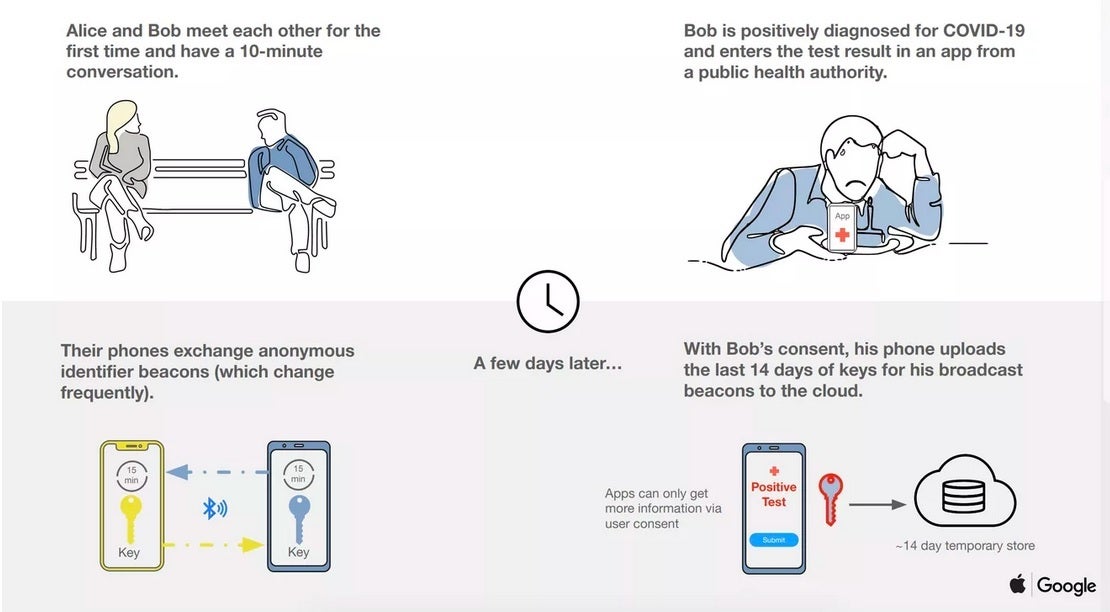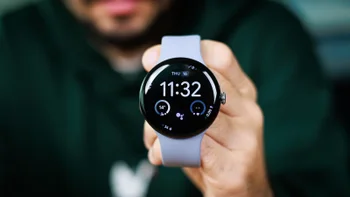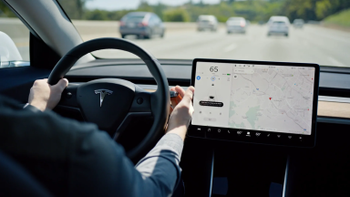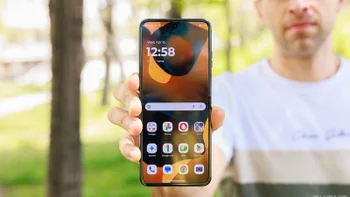Germany surrenders to Apple

By now, you've probably heard about Apple and Google's master plan to take over the world rid the planet of COVID-19. Both iOS and Android devices will create a database of people who have been near you. This will be accomplished using Bluetooth LE and anonymous identifiers that will change frequently to prevent anyone from matching numbers and code with names. The database will collect this information over a rolling two-week period and keep this data on users' phones.
Germany decided to follow Apple and Google's system after Apple refused to change the settings on its handsets
If God forbid you test positive for COVID-19, you would relay this information to an app from a public health organization. Your phone would then send out notices (again, all on an anonymous basis) telling the people in your database that they were in the vicinity of someone who tested positive for the virus. People receiving the notice would be told to get tested and if positive, self-quarantine for two-weeks. Over time, this could provide an early warning to enough people allowing the spread of the coronavirus to slow down.

Apple and Google's decentralized contact tracing will be used in Germany
On April 28th, Apple and Google will have the API ready for developers to build the necessary apps required to make the project work. That means iOS and Android users will have to install an app to take part in the contact tracing. Later this year, updates to iOS and Android will add parts of the system directly into each operating system. Users will be allowed to opt-in from their mobile devices.
After Google and Apple announced their plan on April 10th, some countries in Europe like Germany rejected the plan. While most countries in Europe don't mind that Bluetooth LE is being used to allow mobile devices to exchange information anonymously, they are not in agreement about where this data should be stored. Apple and Google's system stores the collected data on iPhone and Android devices and most European countries prefer that the information be stored in a central server. This would allow specialized teams to make calls and knock on doors to warn people who were in the vicinity of someone who has tested positive for the virus.
Just this past Friday, Germany favored a centralized standard called Pan-European Privacy-Preserving Proximity Tracing (PEPP-PT); this would have required Apple to adjust some iPhone settings which it refused to do. Centralized apps won't allow the iPhone to use Bluetooth LE as a way to exchange information unless the handset is unlocked with the app running in the foreground. This would be a drain on the battery. Reuters reports that with Apple standing its ground, Germany has done a 180-degree turn and will now allow contact tracing data to be stored on individual handsets. A senior government source said that the German government had no choice but to change its mind since Apple wouldn't agree to make the required settings changes.
German Chancellery Minister Helge Braun and Health Minister Jens Spahn said in a joint statement that Berlin would now adopt a "decentralized" approached to contact tracing. In their statement Braun and Spahn said, "This app should be voluntary, meet data protection standards and guarantee a high level of IT security. The main epidemiological goal is to recognize and break chains of infection as soon as possible." In a separate interview Braun further stated, "We will back a decentralized architecture that will only store contacts on devices. That is good for trust." While politicians at first preferred the centralized approach, last Monday hundreds of scientists wrote in an open letter that if the contact tracing data were to be centralized, it would result in "unprecedented surveillance of society at large."
Not all European countries are giving in to Apple and Google. France and Britain still prefer the centralized approach.
Follow us on Google News













Things that are NOT allowed:
To help keep our community safe and free from spam, we apply temporary limits to newly created accounts: